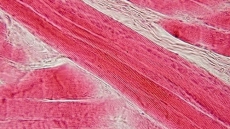The deadly Ebola virus that has killed over 3,300 people in West Africa since its current outbreak was confirmed in March, was christened in 1976 after a river.
The virus first surfaced and caused a mysterious illness among people in what was then Zaire, now the Democratic Republic of Congo.
The story of how Ebola got its name is short and somewhat random, Peter Piot, co-discoverer of the virus, recalled in his memoir "No Time to Lose: A Life in Pursuit of Deadly Viruses".
The virus had surfaced in a village called Yambuku, so it could be named after the village, but the scientists realised that their decision could stigmatise the village for ever.
It was Karl Johnson, another researcher from the Center for Disease Control and Prevention (CDC) and the leader of the research team, who suggested naming the virus after a river to tone down the emphasis on a particular place, Live Science reported.
The scientists found in a map that one river close to Yambuku was Ebola, meaning "Black River", in the local language Lingala.
"It seemed suitably ominous," Piot wrote in his memoir.





